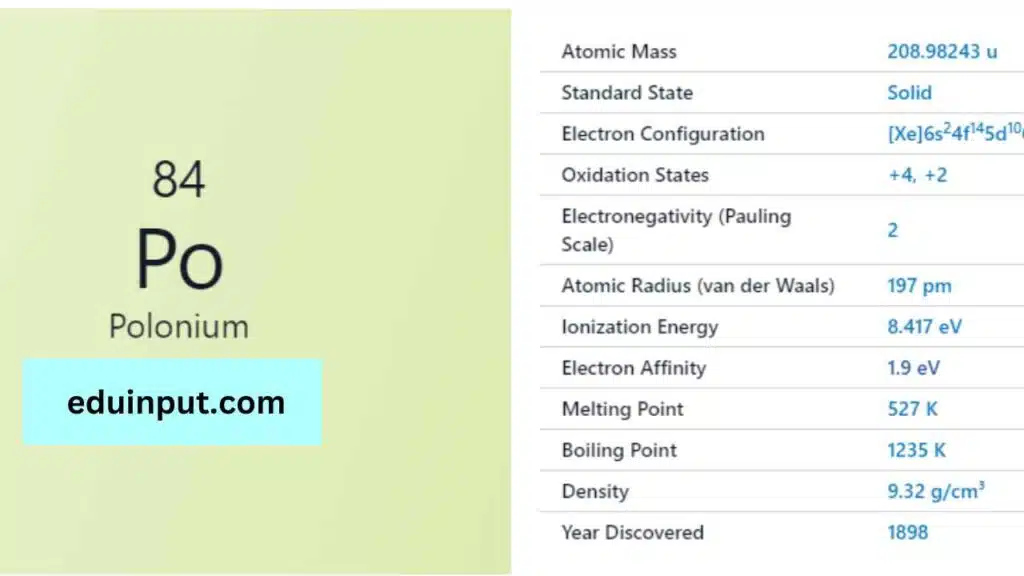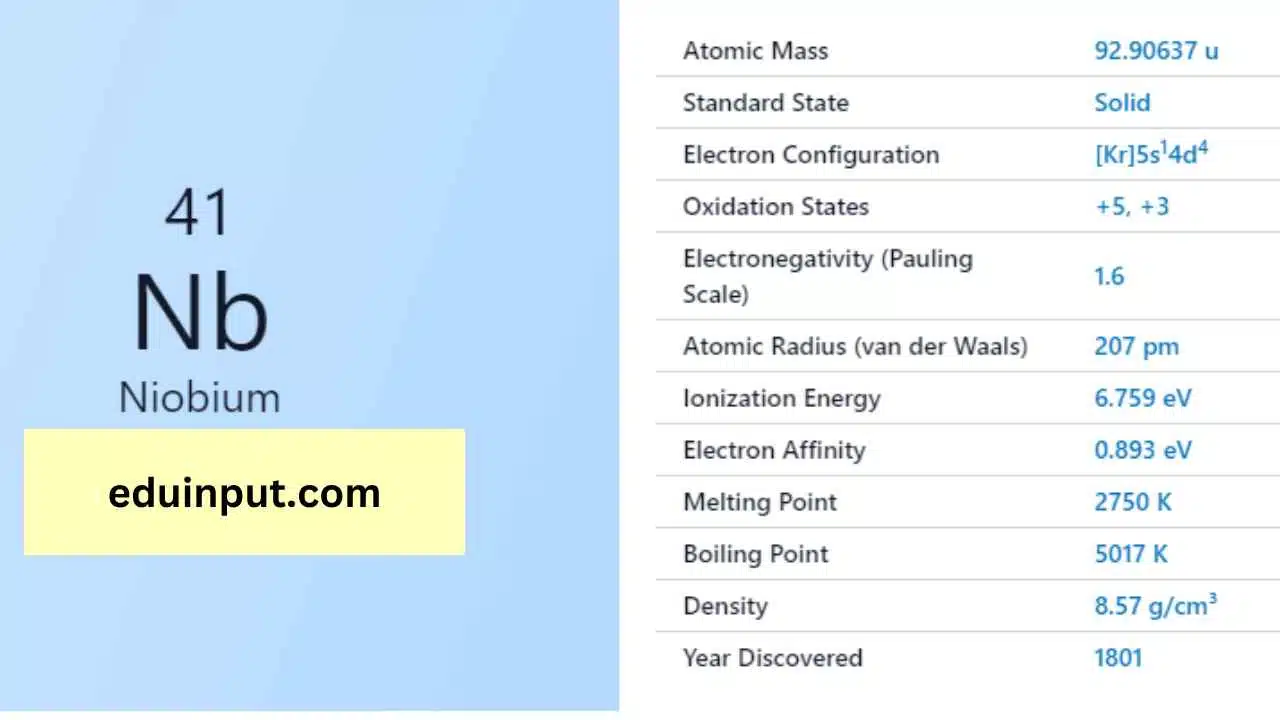Polonium-Discovery, Properties, And Applications
Polonium is a rare and highly radioactive chemical element with the symbol Po and atomic number 84. It is a metalloid and has properties of both metals and non-metals. It is extremely toxic and is considered to be one of the most dangerous substances in the world.

| Property | Value |
| Name | Polonium |
| Symbol | Po |
| Atomic number | 84 |
| Relative atomic mass (Ar) | Group in the periodic table |
| Standard state | Solid at 298 K |
| Appearance | Silvery |
| Classification | Metallic |
| Period in the periodic table | 16 |
| Group name | Chalcogen |
| Block in the periodic table | 6 |
| Block in periodic table | p |
| Shell structure | 2.8.18.32.18.6 |
| CAS Registry | 7440-08-6 |
Discovery
Polonium was discovered by Marie Curie and her husband Pierre Curie in 1898 while they were studying uranium and thorium. They observed that certain uranium-containing materials emitted a new type of radiation that was much more powerful than the previously known alpha, beta, and gamma rays. They realized that this radiation was coming from a new element and named it polonium after Marie’s homeland, Poland.
Physical Properties
Polonium is a silvery-gray metal that has a melting point of 254°C and a boiling point of 962°C. It is a solid at room temperature and pressure, but its density is very low. Polonium is highly reactive and can form compounds with many other elements.
Chemical Properties
Polonium is a highly radioactive element and decays through alpha particle emission. Its half-life is very short, only about 138 days. Polonium can react with many other elements to form compounds, but these compounds are usually unstable and decompose quickly.
Facts
- Polonium was used in the assassination of Russian dissident Alexander Litvinenko in 2006.
- Polonium is used as a heat source in some nuclear batteries.
- Polonium is extremely toxic and can cause radiation sickness and death even in small doses.
Applications
Because of its extreme toxicity and short half-life, polonium has few practical applications. It is used as a heat source in some nuclear batteries and as an alpha particle source in some scientific experiments.
It has also been used in certain medical treatments, but these are very rare due to the risks involved. Overall, polonium is primarily used as a research tool to study radioactivity and other atomic phenomena.







Leave a Reply